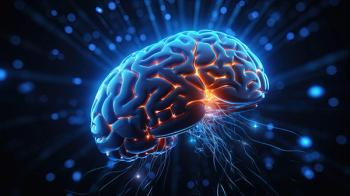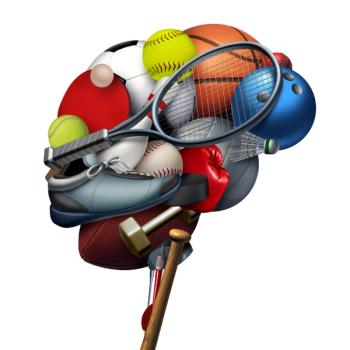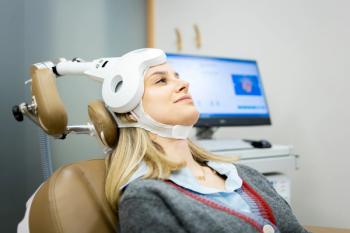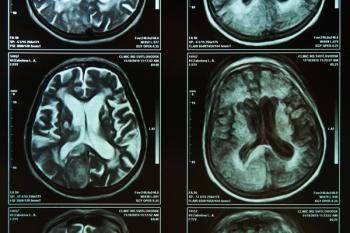
Can TMS Lift the “Brain Fog” of Long COVID?
Transcranial magnetic stimulation treatment appeared to lessen some neuropsychiatric symptoms of long COVID in an open-label pilot study.
Transcranial magnetic stimulation (
The treated population with long COVID was a subset from a TMS consortium research project2 to elucidate treatment mechanisms and identify predictors of therapeutic response to TMS. The initial stage of the project is the development of a centralized registry database of TMS treatment in refractory psychiatric disorders in Japan. The epidemiological, clinical, and biological data collected will be used, the investigators indicated, “to promote cross-sectional and longitudinal exploratory observational studies.”
The results from this open-label, pilot study of TMS in patients with long COVID warrant additional investigation, lead author Yoshihiro Noda, MD, PhD, MBA, of the Department of Neuropsychiatry at Keio University School of Medicine in Tokyo, Japan, told Psychiatric Times®.
“Our future plan is to conduct a full-scale clinical study in patients with long COVID who complain of psychiatric symptoms, using a similar TMS treatment protocol and [a randomized controlled trial] (RCT) design that includes sham stimulation,” Noda said. “We would also like to conduct [electroencephalogram] (EEG) testing before and after the intervention to investigate the neurophysiological therapeutic mechanism of the [repetitive TMS] (rTMS) treatment.”
The current study was conducted in May through September 2022, with patients whose COVID-19 diagnosis had been confirmed with polymerase chain reaction testing as early as January 2020. The 23 study participants, aged 20 to 70 years, were identified from among clinic outpatients presenting with neuropsychiatric symptoms that had manifested after contracting COVID-19. None of the participants had received psychiatric medications at the time of entering the study or during the TMS regimen.
At baseline, participants exhibited moderate depression, with a mean Montgomery-Asberg Depression Rating Scale (MADRS) score of 21.2 (± 7.0) and a mean Patient Health Questionnaire-9 (PHQ-9) score of 12.9 (±4.7). The mean performance status (PS) measure of difficulty with activities of daily living as an indicator of chronic fatigue and lethargy was 5.4 (±1.6). The mean score of the Perceived Deficits Questionnaire-Depression 5 item (PDQ-D-5) to assess cognitive function was 10.0 (±5.2).
TMS treatment was administered 3 times weekly for a total of 20 sessions. Each session consisted of intermittent theta burst stimulation (iTBS) to the left dorsolateral prefrontal cortex (DLPFC) followed by low-frequency rTMS to the right lateral orbitofrontal cortex (LOPC).
“The rationale for combining low-frequency rTMS for the right LOPC in addition to the usual iTBS for the left DLPFC was inspired by the TMS treatment protocol for refractory depression invented by Feffer and colleagues,”3 Noda and colleagues acknowledged.
“This TMS treatment protocol also showed ameliorative effects on cognitive impairment represented by ‘brain fog,’” the investigators noted. “The reason behind the improvement in cognitive function with this TMS treatment protocol may be that the TMS treatment targeted the left DLPPC, the most common target site of TMS treatment for depression, resulting in significant improvement in cognitive impairment, including executive dysfunction.
“Furthermore, administration of iTBS, which has afacilitatory effect on the DLPFC, may strengthen neural rhythms, including theta-phase and gamma-amplitude coupling, which is also related to cognitive function and may even lead to enhanced neuroplasticity in the same region, thereby improving cognitive function.”
In this study, the investigators found a significant improvement in mean MADRS score to 9.8 (±7.8). Approximately 65% of participants (15/23) improved their baseline score by ≥50% and approximately 70% (16/23), with a post-treatment score of ≤ 10 marking remission of depressive symptoms. The investigators indicated that most participants were subjectively aware of improvement, which was reflected in the statistically significant mean improvement in the self-administered PHQ-9.
The investigators reported that improvement of the mean PDQ-D-5 score to 6.3 (±4.7) was evidence of “significant improvement in cognitive function,” and they noted that no participant showed deterioration in cognitive function following the TMS sessions. Although there was also improvement to 4.2 (±1.8) in the mean self-administered PS score, used as a measure of fatigue, the investigators found that any subjective improvement in fatigue appeared to be “at a minor level.”
“rTMS treatment was only partially effective with respect to chronic fatigue due to long COVID,” Noda commented. “The impression was that many patients with chronic fatigue only partially improved, and their symptoms gradually retuned after the TMS treatment was completed.”
Although larger trials, ideally with sham control and additional follow-up assessments, have yet to be conducted, Noda anticipates that TMS treatment could prove helpful for the neuropsychiatric symptoms of long COVID.
“Considering that effective treatment for long COVID has not yet been established, rTMS therapy is a possible option,” Noda said. “However, since rTMS therapy imposes a certain burden on both therapist and patient, I believe that it should be implemented only when a TMS specialist judges its appropriateness and the patient is willing to undergo rTMS therapy.”
Dr Bender reports on medical innovations and advances in practice and edits presentations for news and professional education publications. He previously taught and mentored pharmacy and medical students, and provided and managed pharmacy care and drug information services.
References
1. Noda Y, Sato A, Shichi M, et al.
2.Noda Y, Kizaki J, Takahashi S, Mimura M.
3. Feffer K, Fettes P, Giacobbe P, et al.
Newsletter
Receive trusted psychiatric news, expert analysis, and clinical insights — subscribe today to support your practice and your patients.







